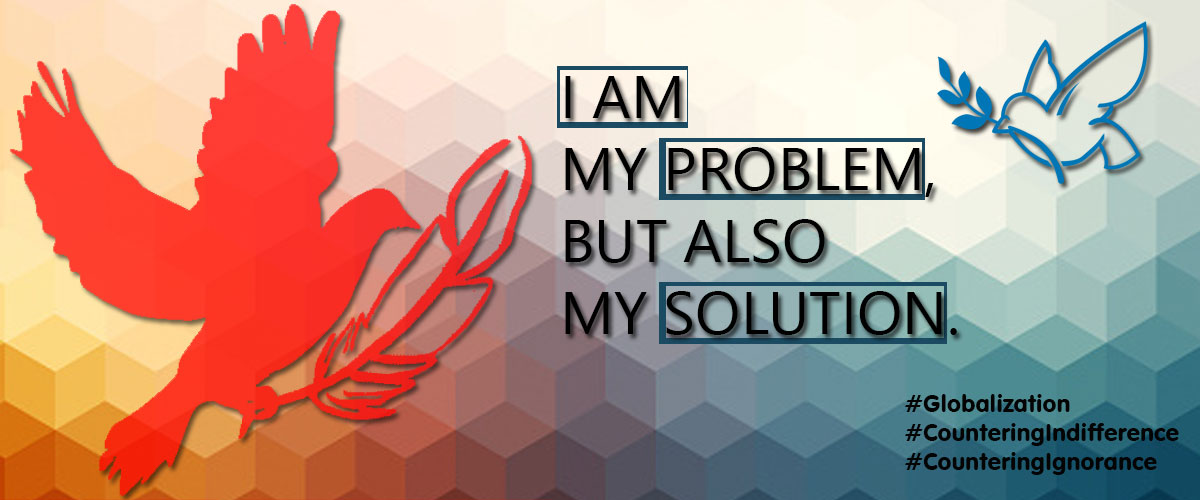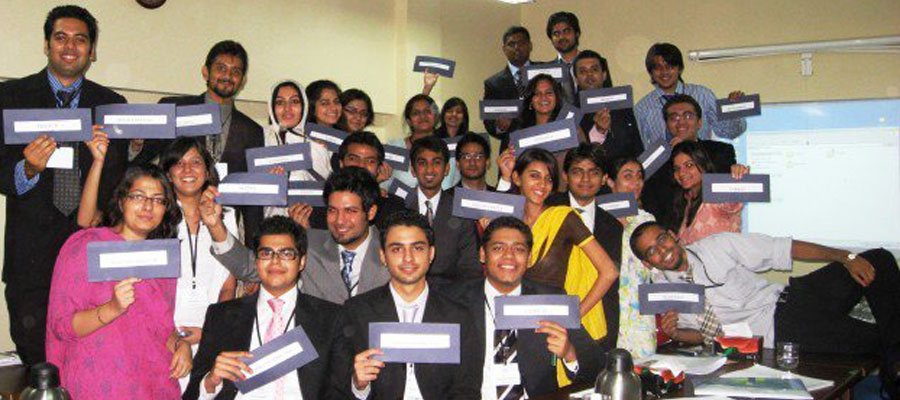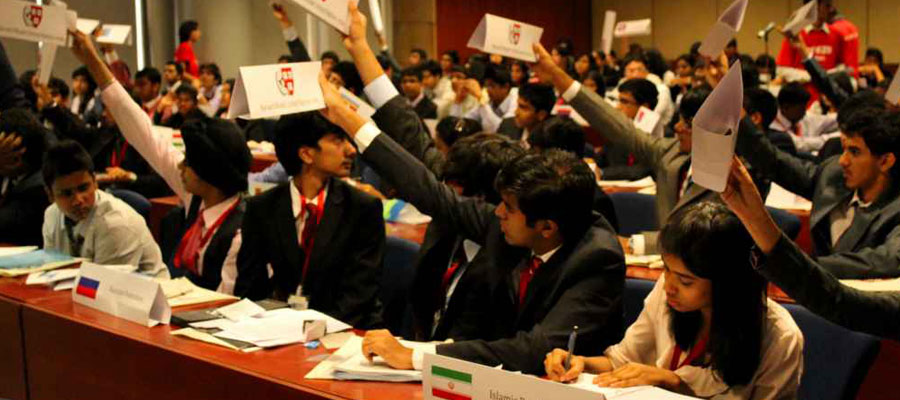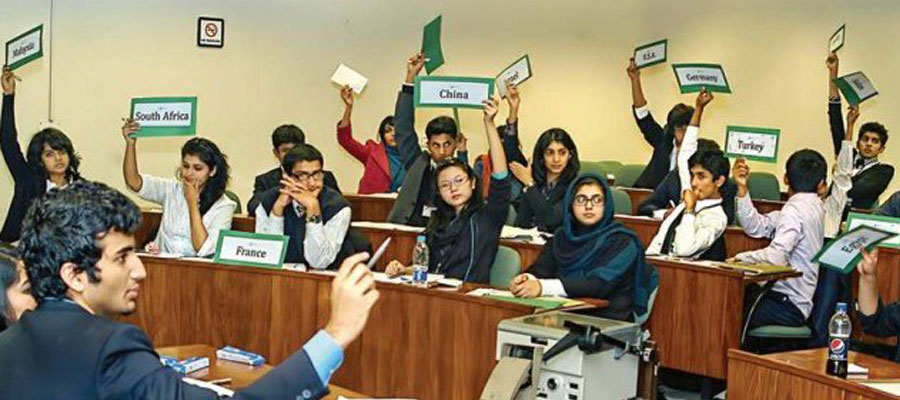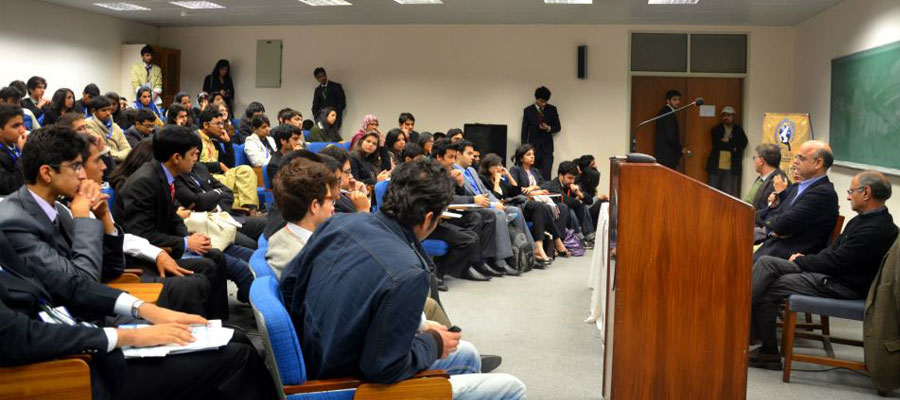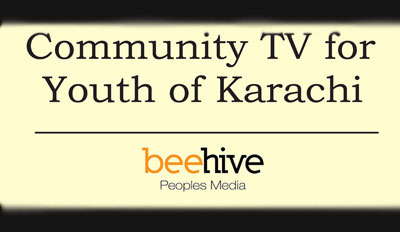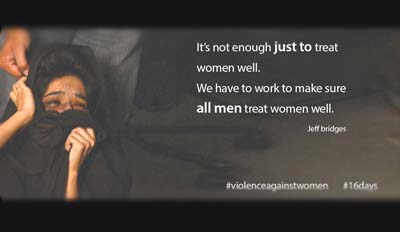A chance we MUST dance on
By Javeria Munaf
Around this time last year, I was adamant to finally explore the much anticipated MUN fever for real. I decided to take the first plunge at my home ground to rediscover the public speaker within me. I wanted it all, the lavishness, the intellectual and eventful aura of this whole shebang; I wanted the entire mixed plate of experiences.
Giving myself no time to second guess my capabilities and worthiness, I ventured in these uncharted waters with my head held high, brimming with hopes and expectations reaching the sky. But like many in this world, my expectations also fell head first. The MUN shebang acquainted me well with its circuit of very talented and active youth of this city but did not fail to leave me wanting more and a little disappointed.
For those new to the term MUN or Model United Nations, it is meant to be a platform to authentically simulate the procedures and spirit of United Nations. This is done in the Dias by participants called delegates and the mediators. Its primary objective is to educate its participants the principles of internationalism and global peace by motivating them to research, negotiate and draft resolutions on issues and conflicts present worldwide. What attracted me most to this exercise in simulation was how MUN promotes tolerance by embracing diversity and empower the participating delegates to discover and enhance their leadership and negotiating skills in times of crises. This culture has been very active in our country for the past decade, and a few years in Karachi. But with all such societal engineering incentives this currently reflects the toxic, indifferent and intolerant mindsets of our society.
The mainstream MUN culture specially in Karachi is that of a fancy dish worth an average student’s monthly pocket money, that have festive socials on the side and fancy specialized committees with slogans that add bursting flavors for attraction like ‘Beyond Diplomacy’ or ‘Embracing Diversity’; all trying real hard to get the right feel. I don’t want to overgeneralize and drag all MUNs to stand in one line like ‘mehmood o ayaz’ but for those who enter this circuit for more than just acquainting themselves with the scholarly eloquent speeches and want to see some practical result within and outside the committee rooms, it is not that fulfilling an experience. Many participants are seen indulging in networking for ‘unprofessional’ purposes or just there to get some ‘DSLR pictures’ snapped.
MUN is a now a hundred-thousand-rupee project that every institution plans to organize, with little to no care of long-lasting moralistic and intellectual understanding of the spirit of that conference.
Furthermore, the inferiority complexes due to multiple educational boards of varying academic credibility are reflected in such conferences. Students feel insecure of their speech skills and try kill this stress by worrying over what to wear to such ‘posh’ and ‘international’ conference. For a conference that pledges to embrace diversity, culture shock should be appreciated rather looked down upon. Students who do have something constructive to contribute many a times get overshadowed by loud obnoxious delegates ranting irrelevant speeches incompetently or worse, by ambitious people who go to lengths to just pass their resolutions. Such delegates create an environment of fierce competition, making many just short of promising their firstborn to fellow delegates to support their resolution in the committee.
But the blame for such unfruitful simulating conferences resides more on the administrative body and/or secretariat. A credible Dias does not just ensure that the committee sessions are productive and constructive but it also challenges delegates to think at their feet and resolve conflicts and crises even with your arch-enemies. That is where critical thinking, diplomatic dialogue and conflict resolution comes together to encourage leadership amongst delegates. Such confidence boosts are appreciated in our surroundings and is what actually gets marketed the most.
To be frank, all sarcastic jesting aside, I agree that MUN is one of the sole platforms today for the youth that incorporates the spirit of diplomatic public speaking and constructive critical thinking. I strongly advocate for such public speaking activities should happen in every academic institution to create interests among students to be aware of the world’s history and why the current situation is the way it is. To be conscious of national and international issues is empowering. Participants get an opportunity to saturate knowledge and form authenticated defenses about matters pertaining to national and international relations.
A nation prospers when its youth is socially, politically and economically active and vigilant. The essence of this conference if personified sincerely nationwide, will give us youngsters which will be fully equipped to work for both national and global interests. But its limitations need to be addressed. Equal opportunities and participation, unbiased judgments and diligent administration can comprehensively impact the society.
